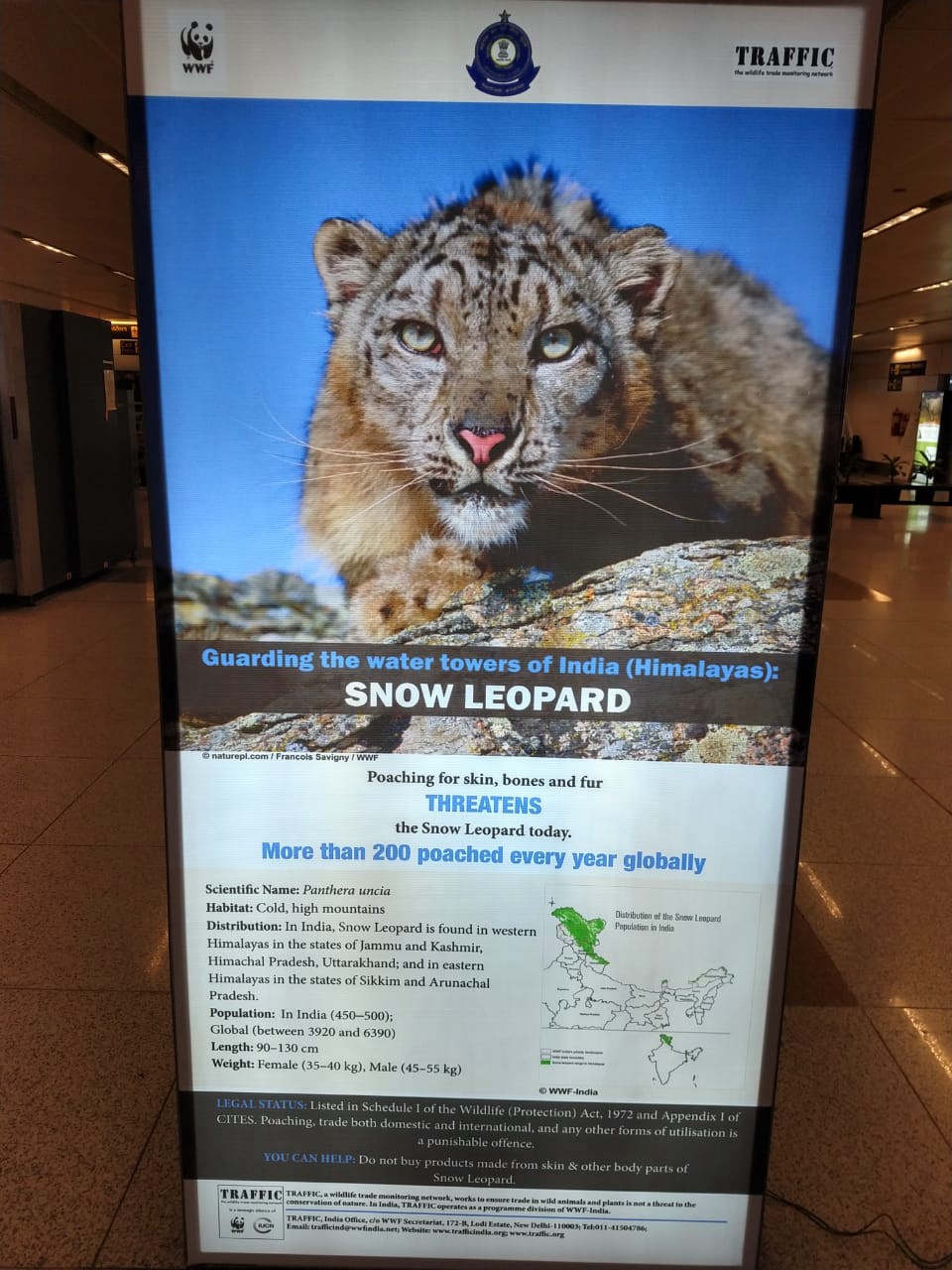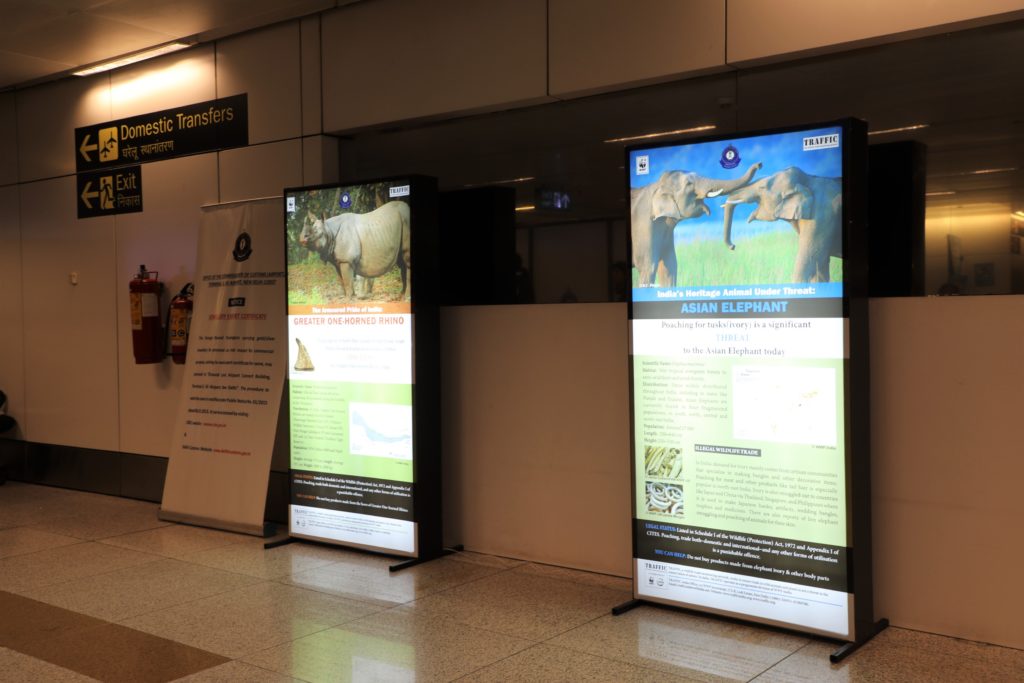- BY tictac
- POSTED IN Blog
- WITH 0 COMMENTS
- PERMALINK
- STANDARD POST TYPE

New Delhi: The Indian Customs Department; TRAFFIC and WWF-India are reaching out to travelers passing through Indira Gandhi International Airport, Delhi—India’s busiest airport—on issues related to poaching and illegal wildlife trade. Five life-sized, brightly lit standee displays of Snow Leopard Panthera uncia, Greater One-Horned Rhino Rhinoceros, Pangolins; Asian Elephant and Don’t Buy Trouble (which lists prohibited wildlife species for possession or trade in India) have been set up in the Arrival, at the Customs checkpoint in Terminal 3.
Snow leopard is poached for its fur and body parts while Greater One-Horned Rhino is targeted for its horn used in supposed body tonics. Pangolins—reported to be the most trafficked wild mammal globally— on the other hand are poached for their scales and meat. Asian Elephant poached for its tusks, which are used to make artefacts and jewellery, and sometime for its meat and skin—the latter is used to make fashion beads and as ingredients in traditional Asian medicines.
Unsustainable consumer demand for wildlife products is a leading threat facing many such wildlife species today. Traffickers rely on existing transport links to smuggle illegal wildlife products to consumers across the world. Misuse of the aviation system by smugglers to evade Customs and other enforcement agencies is a major concern. Meanwhile, both international and domestic airline passengers are sometimes unaware about the illegality of buying certain wildlife products and the grave conservation impact of their actions on various species in the wild.In India, the Customs Department is tasked with preventing trade of contraband, including illegal wildlife products, across the borders at entry/exit points.

About TRAFFIC
TRAFFIC is a leading non-governmental organisation working globally on trade in wild animals and plants in the context of both biodiversity conservation and sustainable development. TRAFFIC works in strategic alliance with its founding organisations, IUCN and WWF. TRAFFIC in India operates as a programme division of WWF–India, the largest conservation organisation in India. More: www.traffic.org; www.trafficindia.org

